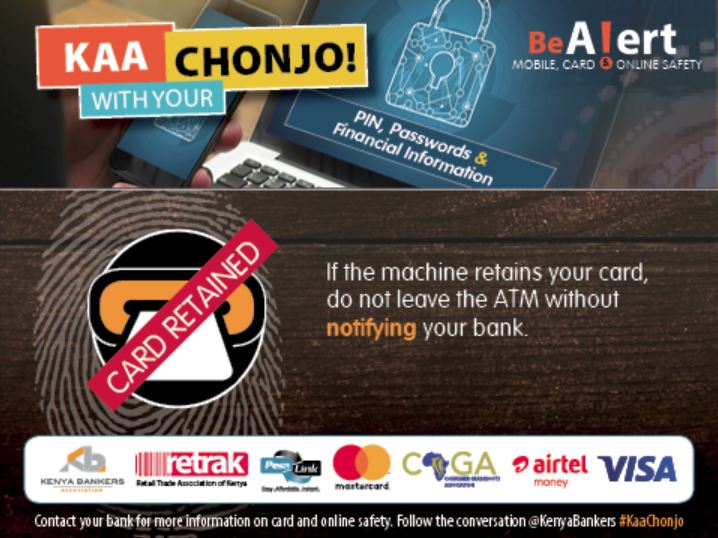×
The Standard e-Paper
Join Thousands Daily

The Kenya Bankers Association on May 3, 2019 launched the bi-annual Safety Awareness Campaign: Kaa Chonjo! The initiative was rolled out in partnership with VISA, Mastercard, Retail Trade Association of Kenya (RETRAK), PesaLink, and Consumer Grassroots Association (CGA).